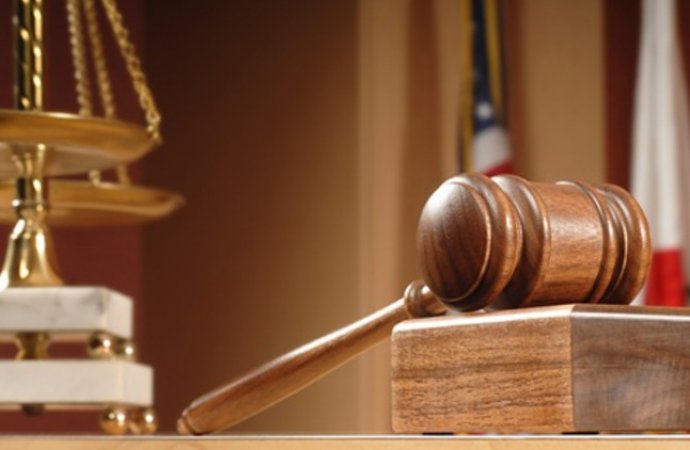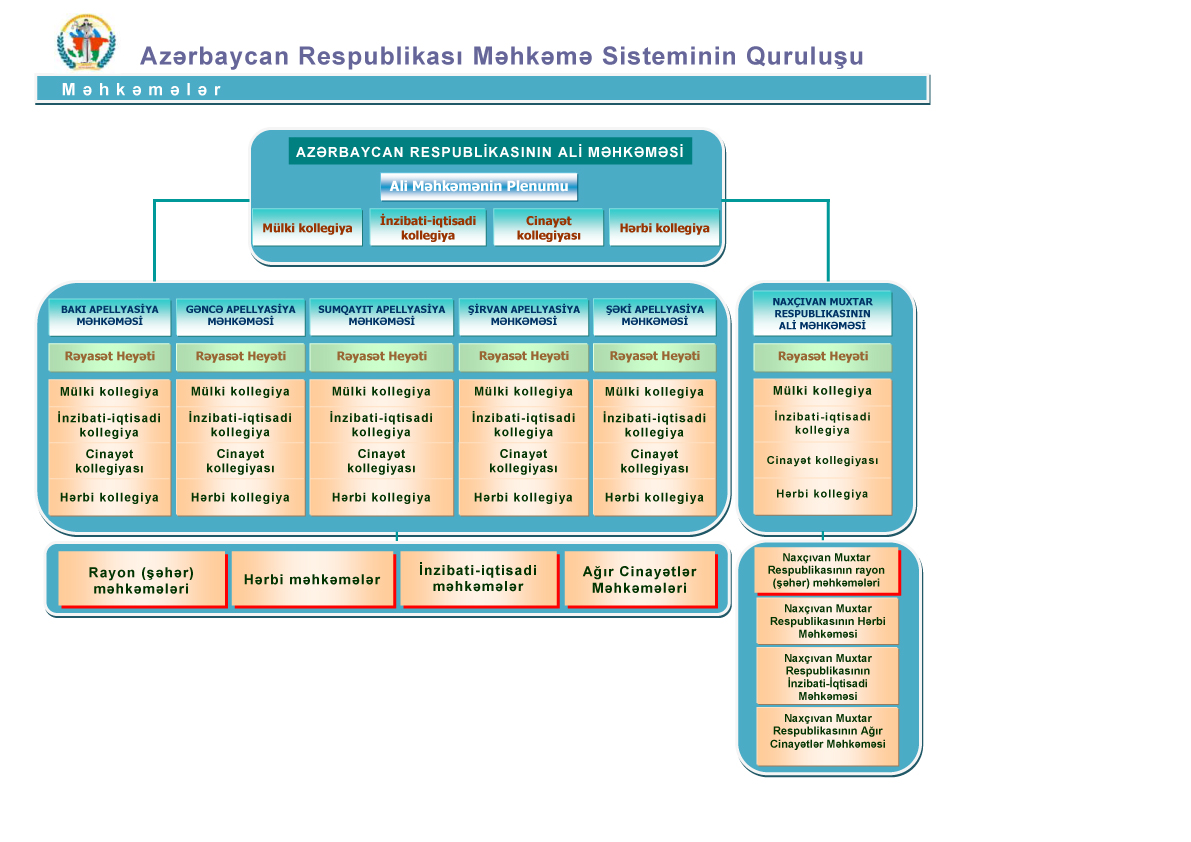JUDICIAL POWER
After Azerbaijan gained independence, fundamental reforms were carried out in the legal system of the country. These reforms, which serve to create a truly democratic society based on the national, cultural, and historical traditions of the Azerbaijani people, are primarily aimed at ensuring human rights more reliably. One-third of the provisions of the first democratic Constitution of the country, developed in 1995 in accordance with democratic values and principles and adopted by popular vote,  were devoted to human rights and freedoms, the principle of separation of powers was established. Considered by international experts as one of the democratic constitutions of the world, this Constitution laid a solid foundation of the democratic system and legal state in Azerbaijan and paved the way for carrying out legal reforms.
were devoted to human rights and freedoms, the principle of separation of powers was established. Considered by international experts as one of the democratic constitutions of the world, this Constitution laid a solid foundation of the democratic system and legal state in Azerbaijan and paved the way for carrying out legal reforms.
As a result of the judicial-legal reform conducted under the leadership of the national leader of the Azerbaijani people Heydar Aliyev, the legal system of the country inherited from the former Soviet Union has been completely reconstructed on the basis of democratic principles.
In accordance with the reforms, new progressive laws, including the laws "on Constitutional Court", "on Courts and Judges", "On Prosecutor's Office", "on Police", "on Operational-search activity" and others, which are fundamentally different from the previous ones: Civil and Civil Procedure, Criminal and Criminal Procedure, execution of sentences, etc. codes have been adopted. All these laws were developed in accordance with the requirements of democratic principles and norms of international law and were highly appreciated by international experts.
As a result of the reform of the legal system, a new three-tier independent judicial system consisting of First Instance, appellate, and Cassation instances was established in the country.
Measures to improve the judicial system in our country are always kept on the agenda. The president of the Republic of Azerbaijan Mr. Ilham Aliyev signed the decree on modernization of the judicial system dated January 19, 2006, and the judicial reform has reached a qualitatively new stage.
In recent years, new courts, including new courts of Appeal have been established, the number of judges has been increased 2 times, the structure of the court apparatus has been improved in order to increase the efficiency of Justice, facilitate the access of the population to the courts and develop the country's regions. The Academy of justice was established and started its activity.
At present, district (city) courts operate as a court of First Instance in the Republic of Azerbaijan, military, local administrative-economic, and grave crimes courts operating under territorial jurisdiction.

In accordance with the new judicial system, courts of Appeal operate in 6 regions of the country. The courts of Appeal consist of 4 boards — civil, criminal, military, and administrative-economic boards and operate under the relevant territorial jurisdiction. In the organization of the courts of Nakhchivan AR included in the judicial system of the Republic of Azerbaijan, it was taken into account that the autonomous republic is located outside the main territory of the country and is kept under blockade by the aggressive Republic of Armenia. The Supreme Court of Nakhchivan AR is the appellate instance in relation to the courts of the autonomous republic. Decisions of the Supreme Court of Nakhchivan AR are considered by the Supreme Court of the Republic of Azerbaijan in the Cassation procedure.
There are 4 judicial boards — Civil, Criminal, Military, and Administrative-Economic boards within the Supreme Court of the Republic of Azerbaijan, which is the court of Cassation instance. The decisions of the appellate courts are considered by the Supreme Court in Cassation procedure.
The Constitutional Court of the Republic of Azerbaijan, being the supreme body of constitutional justice of the country, ensures the supremacy of the Constitution of Azerbaijan. At the same time, December 23 "on the Constitutional Court", adopted within the framework of the reforms carried out in our country. According to the law of 2003, the mechanism for exercising the right of citizens to appeal directly to the Constitutional Court in connection with the restoration of violated rights and Freedoms was established.
The relevant amendments to the law "on courts and judges" and the laws "on Judicial-Legal Council" adopted in the framework of measures to increase the efficiency of justice in the conditions of effective cooperation with the Council of Europe are of particular importance.
The immunities and terms of office of judges were revised by the new legislation, indefinite appointment of judges was determined, disciplinary responsibility issues were directly related to the competence of the Judicial — Legal Council, a new body was created for the selection of candidates for the positions of judges.
According to the new rules on Judge elections, for the first time in 2005, multi-stage procedures, test methods, as well as written and oral exams were held, long-term training courses were organized for candidates to judge, High Court judges, prominent scholars, persons with rich knowledge and experience, as well as experts from influential foreign countries, including Turkey, Council of Europe Commissioner for Human Rights, judges of the European Court of human rights, experts of the European Center for General Law and ABACEELI were involved in these courses.



